NordVPN is undoubtedly the most popular VPN provider. It’s pretty much mainstream at this point, offering impeccable security, plenty of servers, and blazing-fast speeds. This provider built its strong reputation over the years, becoming a go-to choice for many users. Atlas VPN, on the other hand, is a much younger company. More interestingly, it was acquired by Nord Security, the same company that owns NordVPN! Not only that but the provider is surprisingly secure and even offers a 100% free VPN, albeit, with limited bandwdith.
In our Atlas VPN vs NordVPN comparison for 2025, we’ll see which service is better. Our duel will lead you through several categories of testing, and in total, we have 9 comparisons to cover. This NordVPN vs Atlas VPN duel will be in-depth and will tell you exactly which provider is better.
We can pretty much spoil the comparison and tell that NordVPN is better overall. However, it’s also a bit more expensive and Atlas VPN offers some features that NordVPN doesn’t have. That said, it doesn’t necessarily mean you should choose one over the other.
To make sure you make the right choice, we recommend sticking with us to the end where we’ll digress everything and tell you our opinion. Now, let our Atlas VPN vs NordVPN comparison for 2025 begin – add a gong sound effect here…
Atlas VPN vs NordVPN: Apps & Ease of Use
To start off this comparison, let’s talk about applications and ease of use. These are premium VPNs, so both of them support a good number of platforms. We always say that NordVPN is an excellent VPN for Windows PCs, but this service also works on iOS, Linux, macOS, Android, and many other platforms.
NordVPN, for example, offers apps for Smart TVs, Android TVs, Fire TV Stick, and even routers. Not to mention that its router support allows it to be used on Apple TV and gaming platforms, making it even more versatile. More advanced users, for this very reason, love using NordVPN.
As for Atlas VPN, well, it’s not perfect. Up until recently, it didn’t have a dedicated Linux app but now, in 2025, it has. Also, it supports Fire TV, but on the list of supported devices/platforms, you won’t find routers. That’s a shame, especially since we’re talking about a premium provider.
One thing where Atlas VPN beats NordVPN is the number of concurrent connections. You see, NordVPN gives you 6 of them. This is by no means bad. However, Atlas VPN has unlimited connections, much like Surfshark, allowing you to protect ALL devices you have at the same time.
You should also keep in mind that Atlas VPN is still a “young” company and it evolves over time. Up until recently, aside from the Linux app, the provider even increased its server fleet and added 250+ servers. However, we’ll talk about that later in this NordVPN vs Atlas VPN duel.
Atlas VPN
In terms of ease of use, we’re talking about two excellent services. Besides, we were pretty impressed with the applications in our Atlas VPN review. The screenshot below shows you how the app looks, and as you can see, it’s a clear white app with a minimal design.
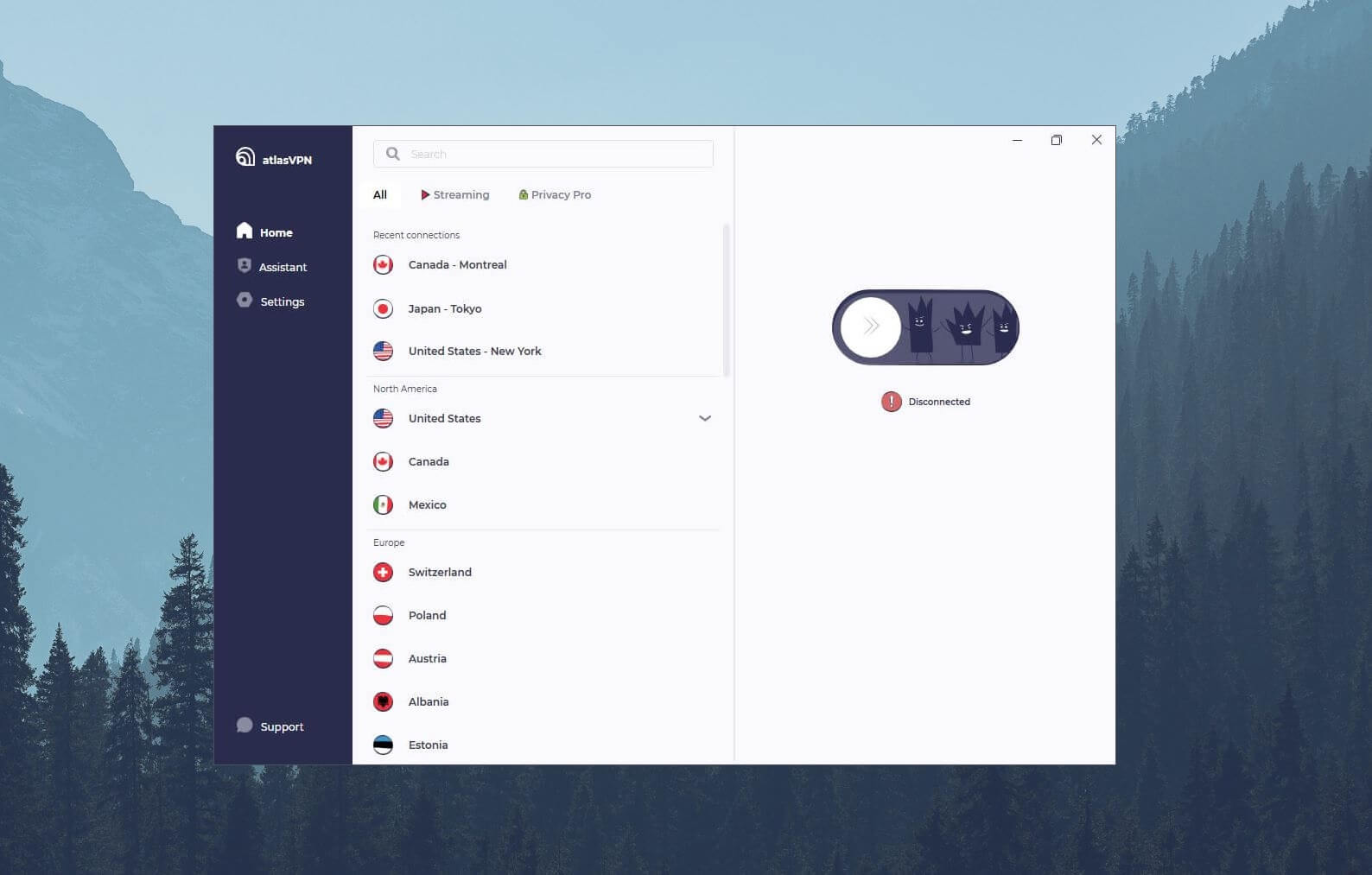
The left side is reserved for Settings and the server list, while the right side shows you the connection button. Connecting to a server is easy and all you have to do is double-click on the location. Thanks to WireGuard support, Atlas VPN will connect you to the server in less than two seconds.
Now, the provider allows you to access other parts of the app easily as well. You can switch to Streaming or Privacy Pro servers from the home screen, for instance. This allows you to diversify your experience and enjoy servers specifically for the activity you want.
On the far left, you’ll find Settings, Assistant, and Support. The Settings menu is reserved for typical features like a kill switch, protocol selection, and other VPN-related functionalities. If you open the Assistant tab, you’ll find other features like SafeBrowser, Data Breach Monitor, etc.
All in all, we like the design and approach that Atlas VPN took. It’s a low-risk-high-reward approach that works well. Its app isn’t the most visually pleasing but hey, it’s more than functional and definitely easier to use than CyberGhost on Windows, which requires a bit of time to get used to.
NordVPN
NordVPN is a flagship product of Nord Security, along with NordLocker, one of the best free cloud services. That said, its app is a lot more modern, but it’s also feature-rich and offers an incredible number of settings and functionalities to go through.
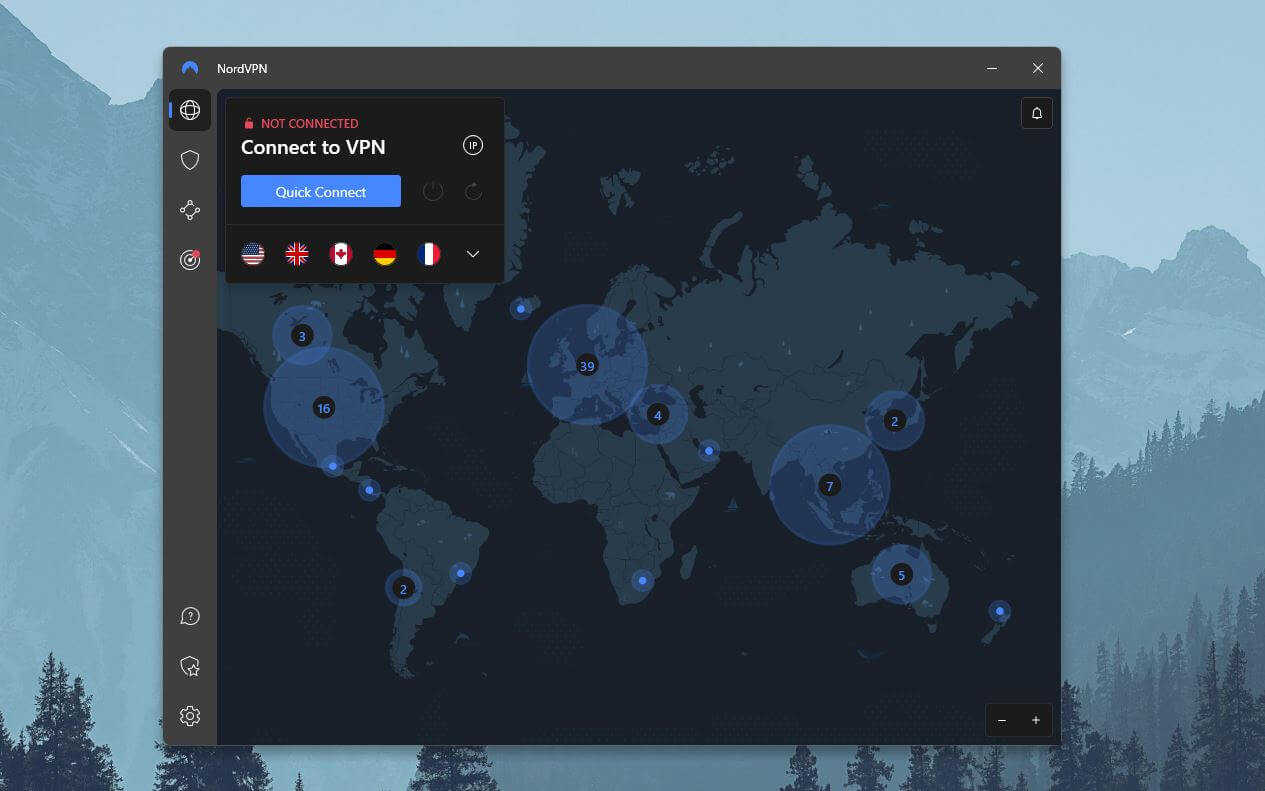
For one, it has a fancy-looking world map that you can use to connect to the server you want. You can also do that by using the server list on the left, where you’ll also find several types of servers. The connection speed is, by the way, blazing fast.
Clicking on the server location connects you to it instantly, even faster than Atlas VPN! On the left, you can also choose from many menus. The Shield icon opens up Threat Protection where you can find antivirus, malware protection, and CyberSec – quite handy.
Then, you can open Meshnet, Dark Web Monitor, and even support directly from the app. The Gear icon in the bottom-left part of the app is reserved for Settings. And here, you have even more features like protocol selection, advanced kill switch, split tunneling, and plenty more.
NordVPN’s look and feel are really something else. And while the provider is very easy to use, its sheer number of features will most likely confuse total newbies. However, once you get accustomed to it, you’ll feel like a hacker, with all of these security features there for you.
Who Wins?
The first round of our NordVPN vs Atlas VPN comparison is pretty tough. Both VPNs offer amazing apps, and while NordVPN supports more platforms, Atlas VPN offers unlimited concurrent connections. You know what? Let’s call this round a DRAW.
Security & Privacy: Which One Is Safer to Use?
The biggest, most important part of our comparison is the one where we talk about privacy and security. And oh, boy, we have a lot of ground to cover on foot, so let’s set sails immediately.
Security Features
In this part, we’ll talk about the security features that both providers have. Of course, the staple of every premium VPN is encryption, so both services offer AES-256 encryption as standard. Another key feature is the VPN kill switch, which you can find in both services – thank God!
We said that NordVPN offers split tunneling and so does Atlas VPN. Alas, with the difference in accessibility, as split tunneling in Atlas VPN can be used only on Android. Nevertheless, both providers support OpenVPN, for instance, but they also have some different protocols that we’ll address soon.
Despite being a cheaper product, Atlas VPN shares a few other features with its rival – or father. Namely, NordVPN offers an ad blocker called CyberSec, while its rival has SafeBrowse, a feature for blocking tracking, malware, and ads.
If you want, we can mention Threat Protection in NordVPN as a whole because in this case, it can even block viruses! The cheaper provider offers a feature called Data Breach Monitor. Logically, it’s the Dark Web Monitor from NordVPN, which lets you see if your data was leaked in a breach.
While NordVPN offers Double VPN, Atlas VPN has MultiHop+ servers. These are the same features with a different name and they’ll both double your encryption, routing your traffic through two servers. Mind you, this is VERY useful for an additional level of security.
In terms of “passive” security features, they also share RAM-only servers and Private DNS. The latter means they both have a proprietary DNS server, which prevents DNS leaks. As a result, it prevents your ISP from monitoring your traffic, as it routes your requests through a VPN-given DNS server.
What Are the Differences?
In this Atlas VPN vs NordVPN comparison, there are some differences despite all the similarities. Atlas VPN uses WireGuard as the main protocol, whereas, NordVPN uses NordLynx – an improved version of that protocol. Is NordLynx better? Absolutely.
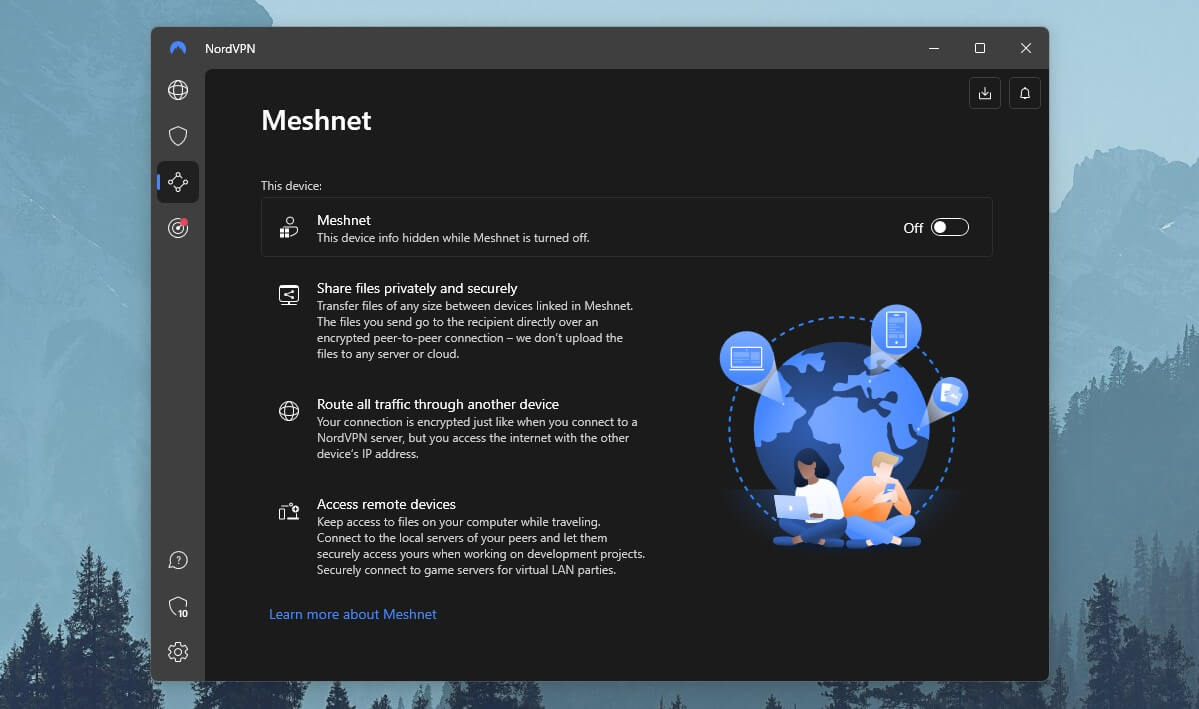
It’s not only safer and more secure but also faster. While Atlas VPN offers a kill switch, NordVPN has an advanced kill switch that lets you choose its “area” of effect. It can work on a system basis but also on an app basis and disable all traffic only for a particular app.
NordVPN, as said, can eliminate viruses, as it includes a full-fledged antivirus. This provider has Onion over VPN servers, which let you utilize this VPN and Tor Browser. Another great feature is the presence of obfuscated servers which make NordVPN work in China.
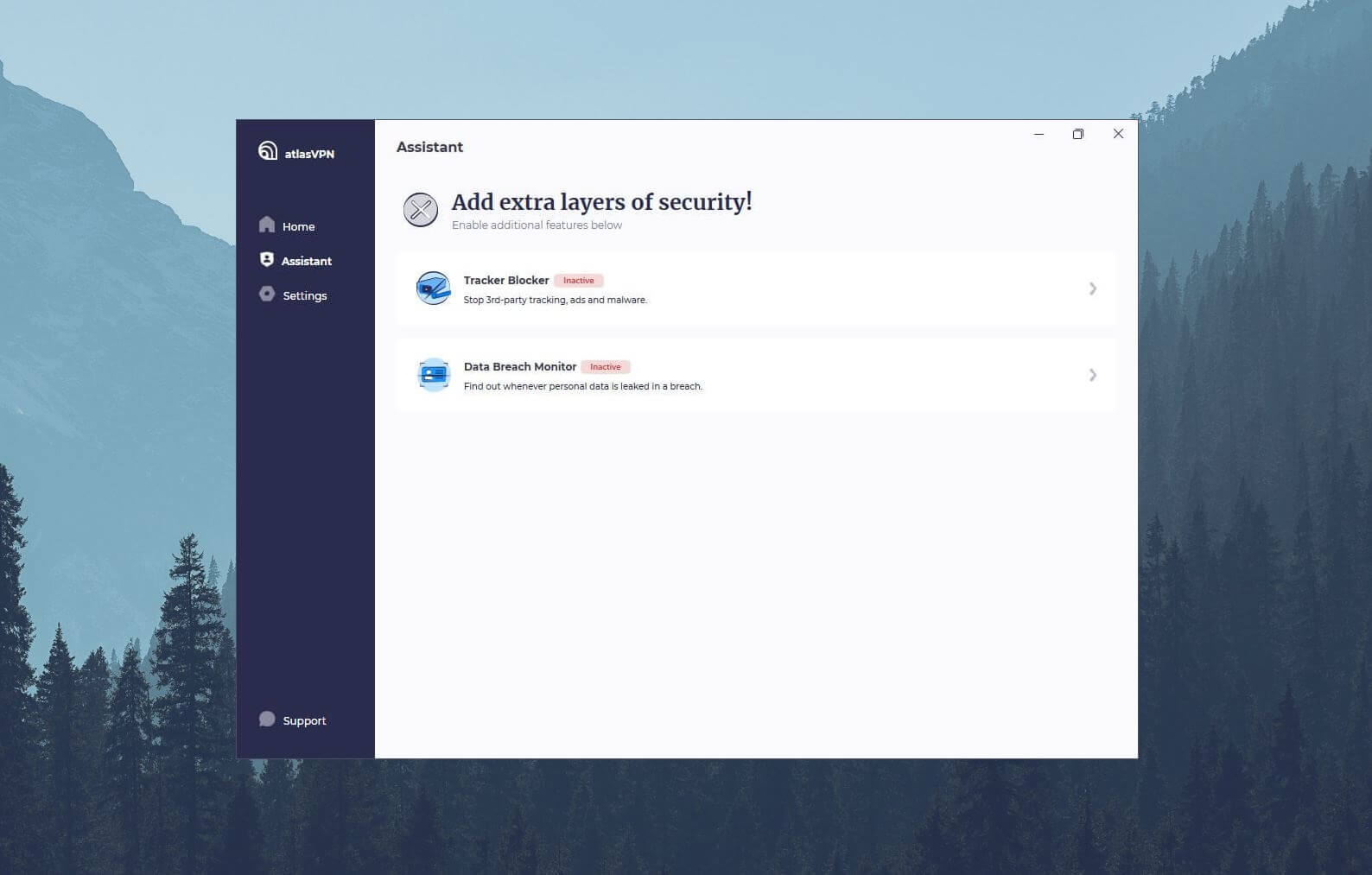
Another feature is Meshnet, something that Atlas VPN doesn’t have. Meshnet lets you join or host secure LAN parties for gaming or work. On the other hand, Atlas VPN has SafeSwap servers that will rotate your IP periodically and make you untraceable online.
Surfshark has IP Rotator – basically the same feature, which NordVPN lacks. On the flip side, NordVPN lets you use a custom DNS server, which you won’t find in Atlas VPN. Overall, NordVPN is undoubtedly more feature-rich, although Atlas VPN is no less impressive for the price.
Is There a No-Logs Policy?
Aside from security, privacy is the most important factor. You can have all the security you want but if the VPN stores logs, it all falls apart. Thankfully, both providers respect your privacy and store only minimal logs necessary for the services to work.
Let’s not go too deep into their privacy policies in this article. We reviewed NordVPN recently and explained its privacy policy in depth. Basically, the provider stores no logs of your browsing history, DNS requests, IP address, connection logs, etc.
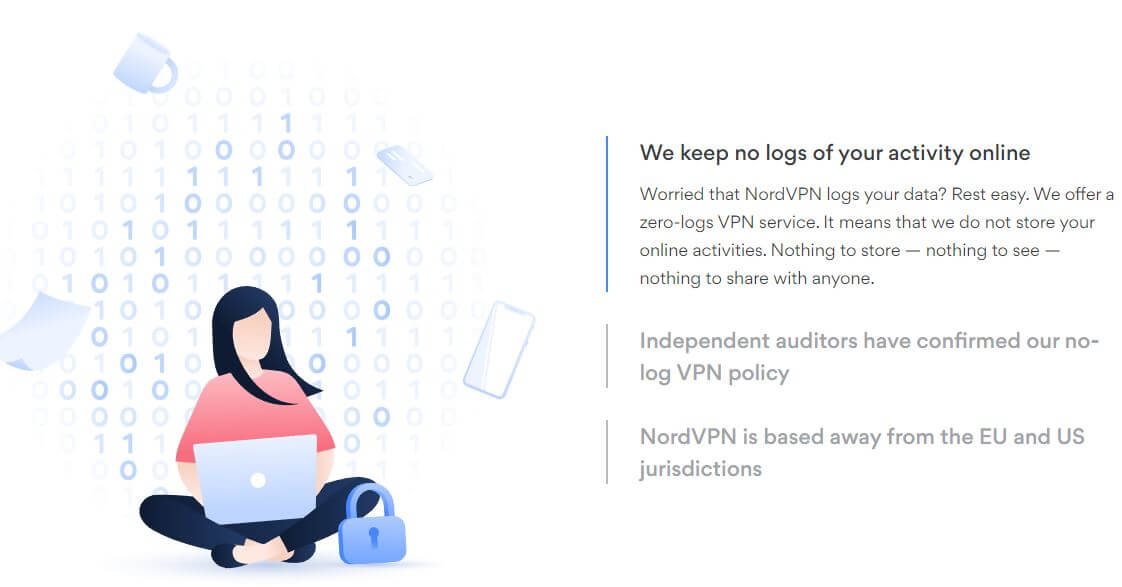
The service stores only your payment data and email address, both of which are a necessity, as you can guess. NordVPN uses RAM-only servers, which means every bit of information is wiped after each restart, so if someone hacks the provider or seizes its servers, no data will be found.
Another thing to mention is an external audit. NordVPN has three of them, two from PricewaterhouseCoopers and one recent from Deloitte. All three audits confirmed NordVPN’s privacy claims and showed us that it’s indeed a true no-log provider.
Atlas VPN won’t ruin the reputation of its father company. It comes with the same no-logging policy but with an audit from VerSprite. It also won’t store data related to your online history, IP address, connection timestamps, and other info.
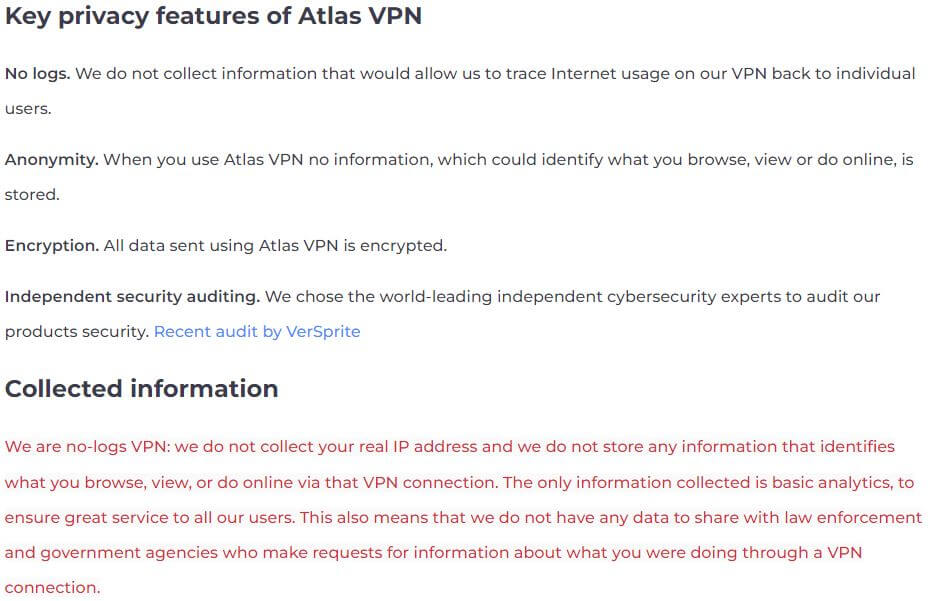
The difference, however, is that Atlas VPN is based in the US, whereas, NordVPN is in Panama. The US is a 5 Eyes country which isn’t the best from a privacy standpoint. Panama is an off-shore location, putting NordVPN away from data-retention laws.
Either way, both services nurture a no-logging policy and adhere to it all the way. You won’t have any privacy issues with them and you definitely won’t be traced online, so it’s a win-win situation in both cases.
Who Wins?
Once again, this round of the Atlas VPN vs NordVPN comparison for 2025 is a tough one. But since NordVPN offers more features and modern protocols coupled with a three-times-audited no-logs policy, we can say that NordVPN WINS in this part of the duel.
NordVPN vs Atlas VPN Streaming Test
Streaming-wise, usually, premium VPNs are much better than free providers. However, in this case, we’re talking about two paid services, so they should be up to par. Right? Not exactly. You see, in our Atlas VPN vs NordVPN comparison, we were surprised at how underwhelming the first VPN is.
When using Atlas VPN, we tested numerous popular streaming services but with very little success. For instance, when trying to unblock Netflix, none of the popular catalogs we tested worked. The same, more or less, applies to other streaming services in the US, as very few of them worked.
In addition, we tested streaming services from the UK, Canada, Japan, and Australia with moderate success. The good news is that Atlas VPN can at least unblock some geo-restricted TV channels. This way, you can access local TV channels in your country when on a vacation abroad.
And, to make things better, the streaming quality is solid, with the ability to enjoy 4K videos. Alas, only when you don’t connect to a very distant server overseas. NordVPN rectifies these problems by being a much more formidable VPN for streaming and unblocking content.
During our testing process, we had no problems with Netflix or any of its libraries. The service could unblock even those less-known catalogs from countries you would never expect! And much like its rival, it’ll work a plethora of foreign TV channels that you can unblock on any part of the globe.
This provider has a built-in SmartPlay functionality, which is SmartDNS. Using it, you can also unblock a good deal of US-based streaming services with ease. Not to mention that 4K streaming is possible even on more distant servers thanks to amazing speeds and performance.
Who Wins?
Overall, NordVPN WINS this round of comparison easily against Atlas VPN. It can unblock more content, and since it’s faster, streaming quality will be better. Atlas VPN needs to work on its streaming capabilities to get closer to NordVPN, but we’ll see what the future holds for it!
NordVPN vs Atlas VPN Speed Comparison
In our NordVPN vs Atlas VPN streaming comparison, you got a glimpse of which provider should perform better. Albeit, we haven’t displayed any concrete results in the form of numbers. This part of the comparison will do that, so keep reading.
Our speed comparison of AtlasVPN and NordVPN was pretty simple and is done the same way as with other VPNs. At the time of writing this comparison, our team was located in Europe where we use the internet with the following speeds/latency:
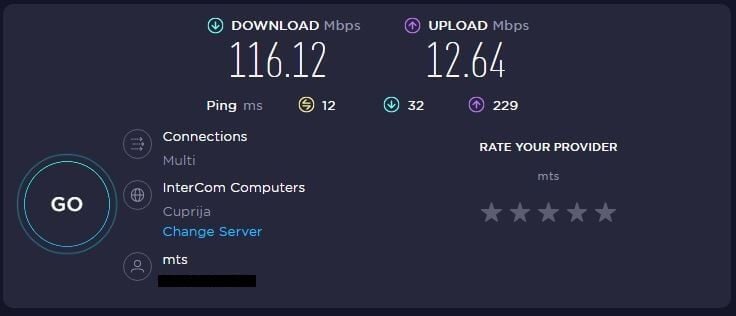
From here, the testing parameters are the following. We tested both services for 3 days in a row, 3 times a day. In the morning, midday, and afternoon. This way, we ensured that the test results reflect real-world use and are as accurate as possible.
Vital to mention is that we used four server locations, such as the US, the UK, Australia, and Japan. And to ensure we use these VPNs like most people, we didn’t bother changing protocols or anything. The protocol was set to Automatic in both cases, letting VPNs decide what’s best for us.
With that out of the way, let’s check out the speed test results together.
NordVPN
UK:
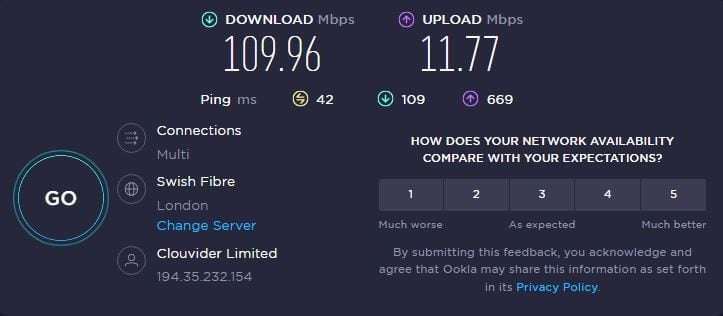
US:
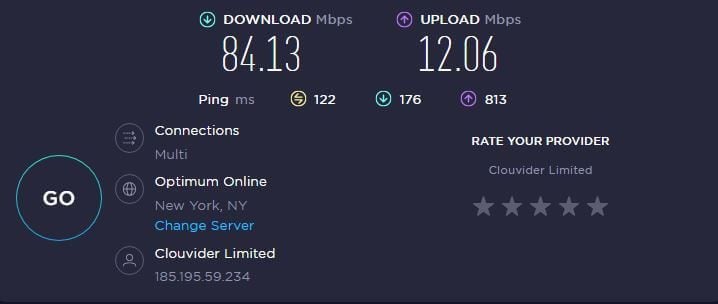
Australia:
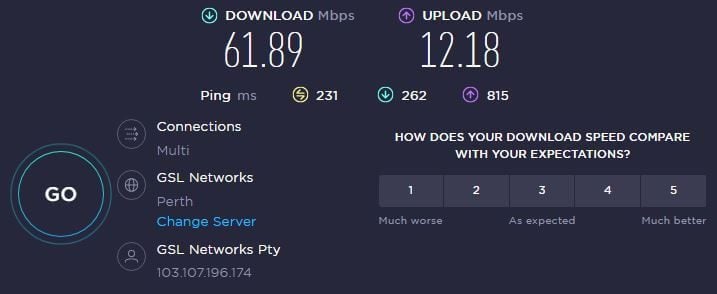
Japan:
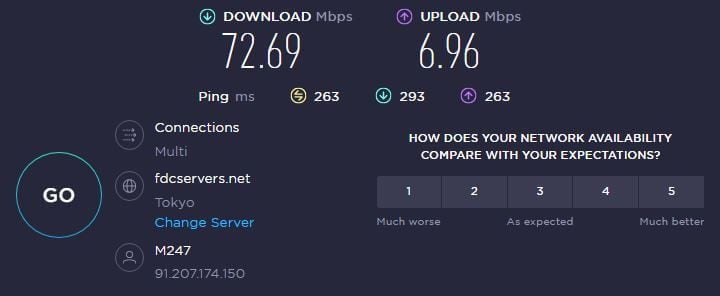
Atlas VPN
UK:
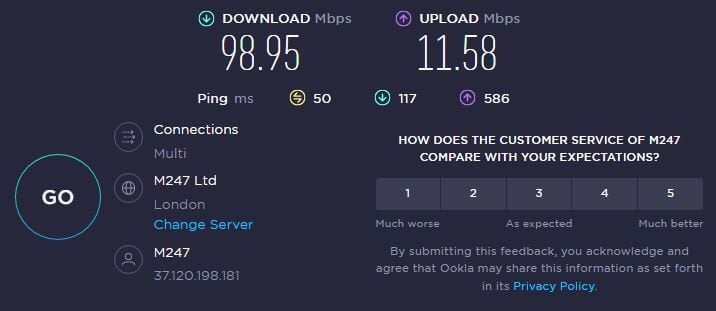
US:
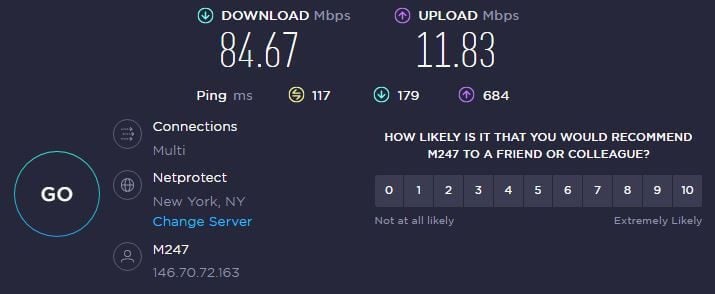
Australia:
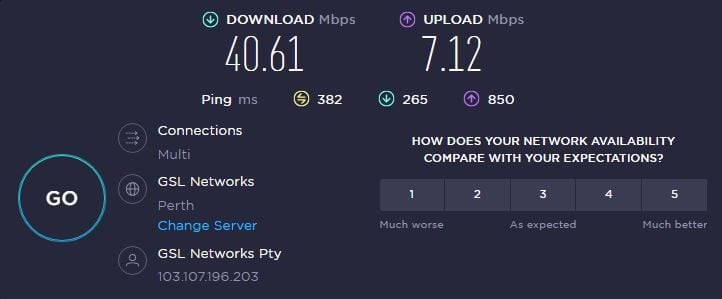
Japan:
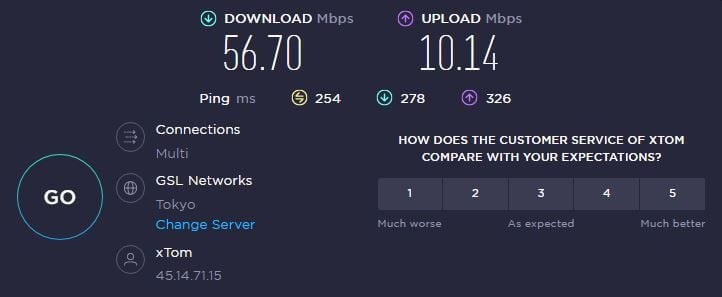
Who Wins?
Atlas VPN held its ground against NordVPN when talking about speeds in the US and the UK. However, as we moved further, speeds in Australia and Japan were quite different. NordVPN was significantly faster on more distant servers, even having lower latency.
This can be seen on the Australian server, where Atlas VPN has a latency of 382 ms, whereas, NordVPN has just 231 ms, which is around 70% lower. Needless to say, NordVPN WINS this round, further increasing the lead in this duel.
Torrenting: Are Atlas VPN and NordVPN P2P-Friendly?
As you know, downloading torrents without a VPN is a dangerous practice. Torrent sites are unsafe and store logs of your download history, plus, your ISP most likely monitors your traffic and is ready to report you to the authorities for torrenting.
Given that this is a P2P activity, your IP address is also exposed to other users downloading the same torrent file. That’s why you want to use a VPN – to encrypt your traffic and download torrents anonymously. The good news is that both VPNs will allow you to do that.
After all, we’re discussing premium VPNs, and pretty much all paid services are torrent-friendly at least on some servers. Atlas VPN offers dedicated streaming servers, for example. And while it doesn’t have P2P servers per se, it doesn’t mean it doesn’t support torrenting.
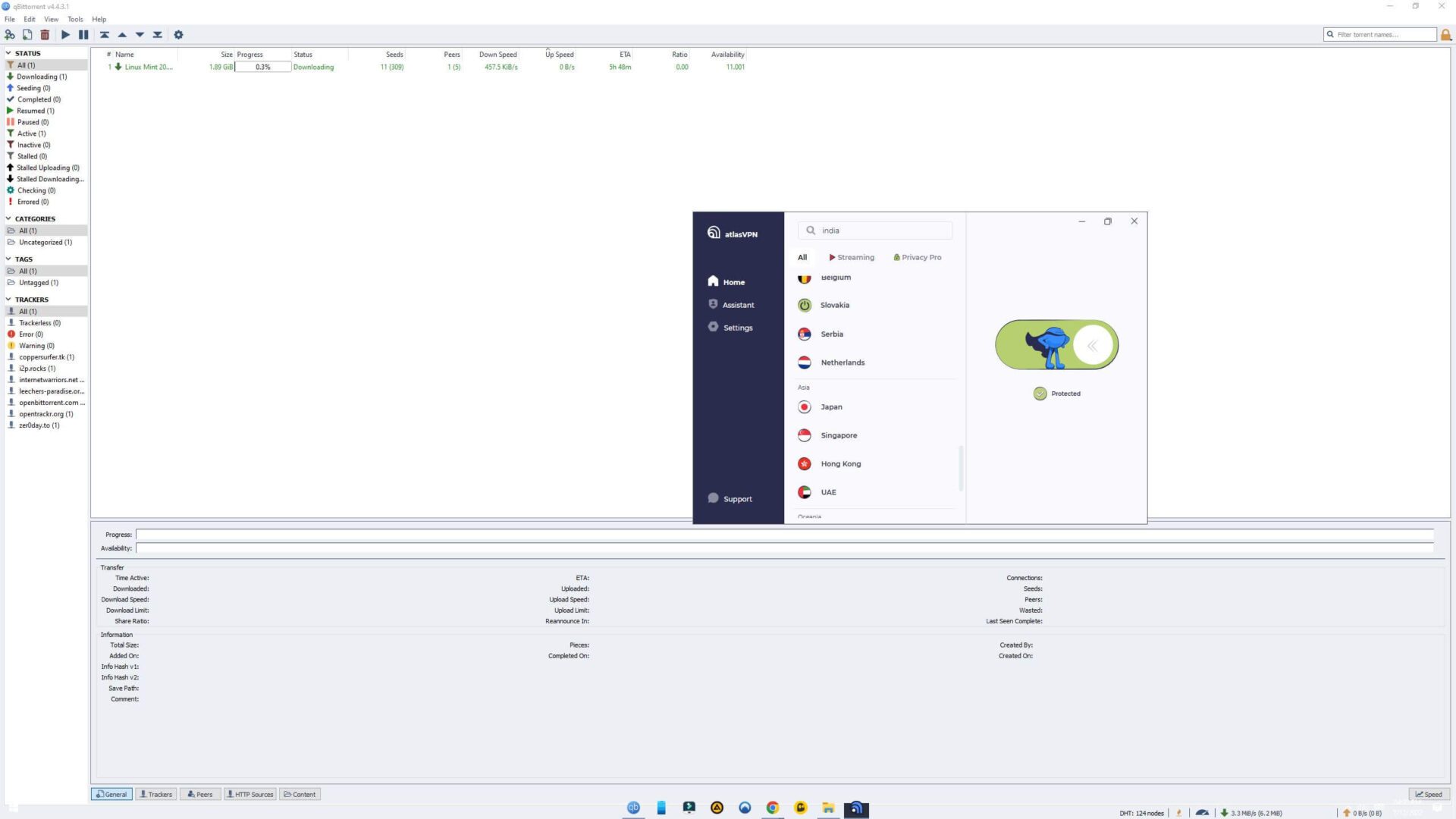
In fact, Atlas VPN works perfectly fine and even provides solid speeds when downloading/uploading. Of course, we tested it by using a server location close to us, as this allowed us to maximize the performance we get. Even better is the fact that its free version is P2P-friendly!
Albeit, with just 5 GB of traffic a month, you won’t be able to download almost anything. NordVPN has special P2P servers optimized for great speeds for torrenting. Other servers work as well, and to be honest, we didn’t notice particular differences in this case.
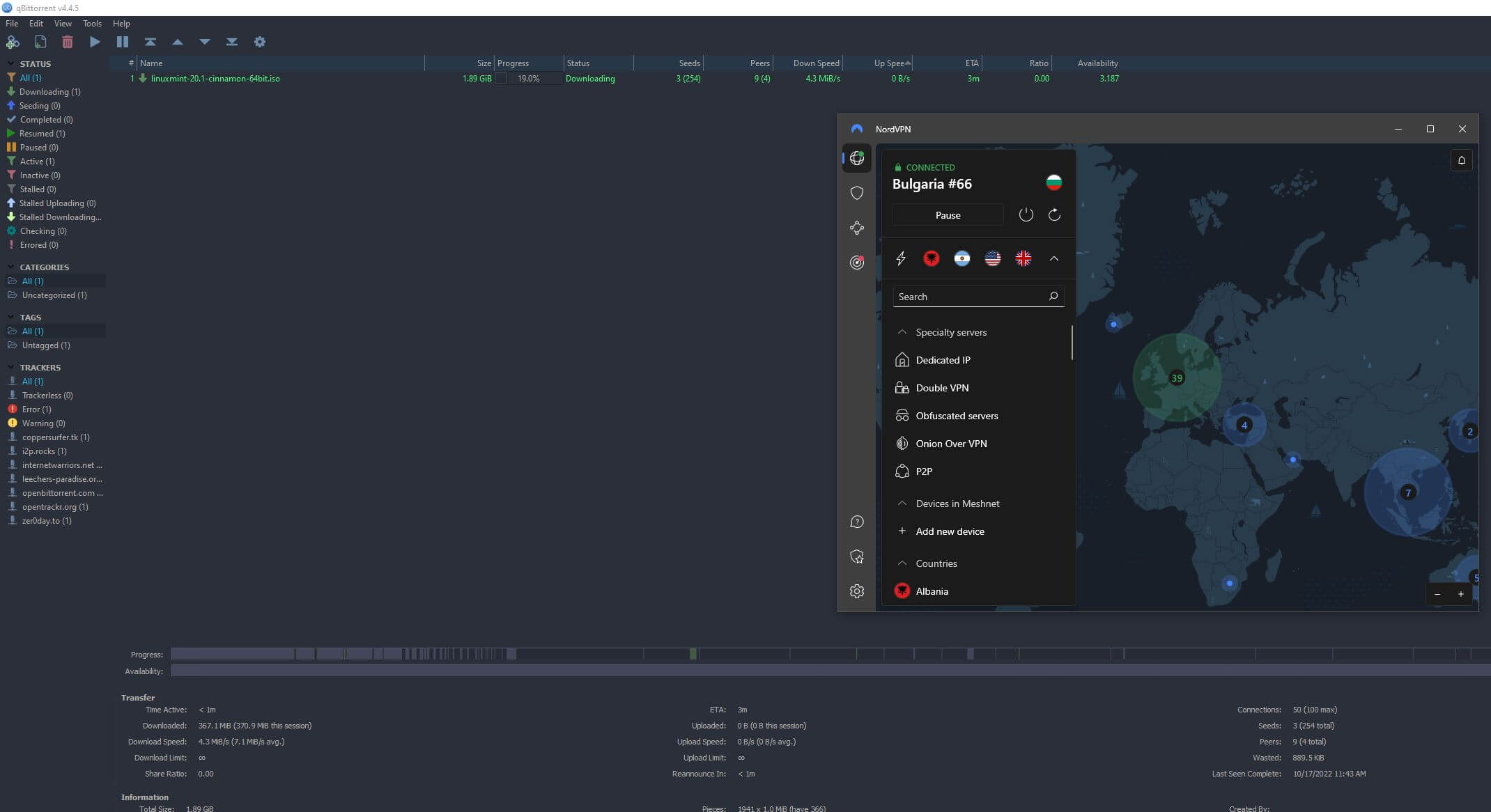
Here, we used a server in Bulgaria and it was blazing fast. No performance hits, no increased latency – nothing! Torrenting was buttery-smooth and NordVPN once again showed why it’s so popular. But, as said, Atlas VPN delivers the same great performance and is torrent-friendly.
Who Wins?
This means that our Atlas VPN vs NordVPN torrenting comparison is a DRAW. As said, both services allow for torrenting and offer staggering speeds for downloading and uploading files.
Are Atlas VPN and NordVPN Working in China?
Chinese residents have to suffer the censored internet space every day. The Great Firewall of China blocks 10,000+ websites at the moment but this number is just going to increase. Since many VPN providers are blocked as well, it’s difficult to find a provider that’s working.
This comparison of Atlas VPN vs NordVPN will tell you how well they’re working in China. Let’s start with Atlas VPN because we don’t have much to talk about it. In simple words, it’s not working. Our testers used it with both WireGuard and OpenVPN.
WireGuard, of course, won’t get over the Great Firewall. OpenVPN, in some cases, can, but our team had no luck. NordVPN, on the other side, has a trick that Atlas VPN doesn’t – obfuscated servers. These servers take advantage of OpenVPN TCP, which is excellent for this case.
While UDP is a bit faster, TCP is great for use in a censored environment. Obfuscated servers will mask your VPN connection and make it look like an ordinary connection, which bypasses the DPI (deep-packet inspection) and lets you slide through the Great Firewall.
In fact, our testers reported that NordVPN works almost 100% of the time, which is impressive. To that, we should add solid performance and speeds in China, despite the additional encryption and obfuscation. This makes NordVPN incredibly useful not only in China but in other censored countries.
Who Wins?
Judging by our test results, NordVPN WINS this round against Atlas VPN. Atlas VPN couldn’t get over the Great Firewall but its rival took advantage of obfuscated servers to deliver impeccable performance in a censored country like China.
Atlas VPN vs NordVPN Servers: Which One Has More?
For people who prioritize more server locations for bypassing geo-blocks and getting better performance, the size of the server fleet definitely matters. Let’s see which service has more servers.
Atlas VPN (1,000+ servers in 40+ countries)
Atlas VPN comes with 1,000 or so servers in 49 locations. In total, it has around 42 countries, actually, but it has several VPN locations in some of them. No doubt, the server park isn’t impressive compared to NordVPN or providers like ExpressVPN and PIA.
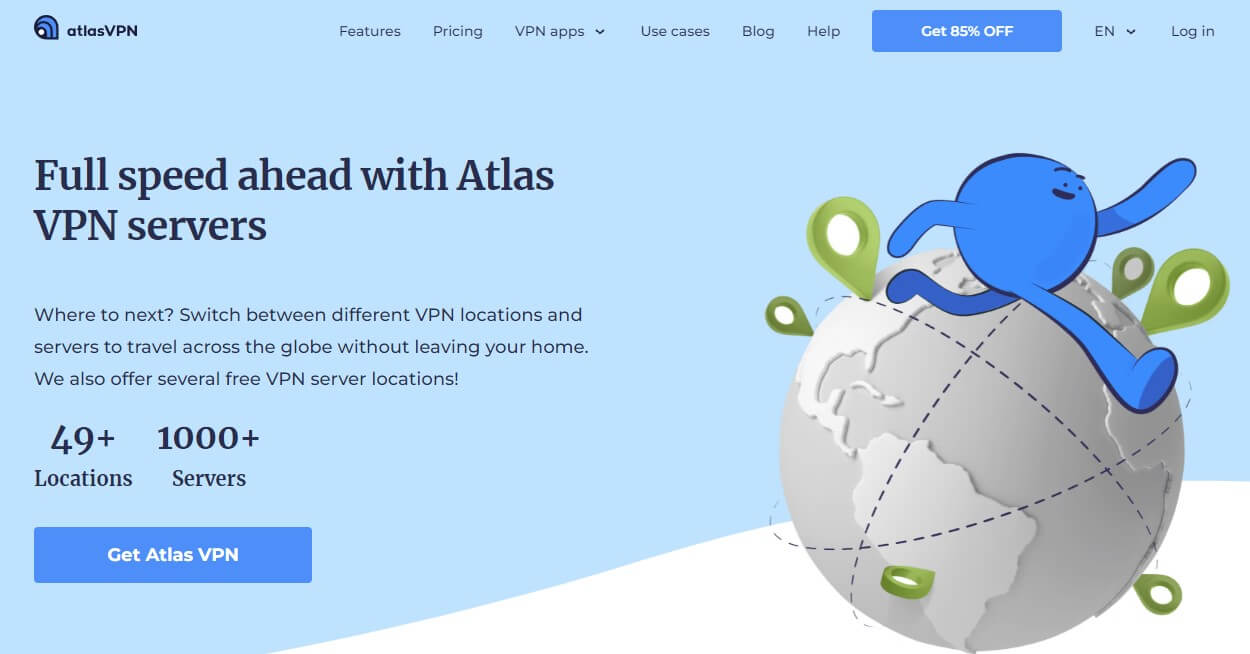
But the good thing is that Atlas VPN inserts some variety with a few types of servers. For example, you can enjoy dedicated streaming servers, and although they aren’t great in terms of unblocking content, we hope to see this changed in the future.
Another thing is that you get these SafeSwap servers, which will rotate your IP periodically and help you stay untraceable online. In addition, there’s MultiHop+, allowing you to double your encryption and enjoy additional security by routing your traffic through two servers.
The server distribution is decent, and of course, you’ll find most of the servers in the US. That’s not to say that Europe isn’t properly covered. But beware that the provider has not many servers in Africa. In fact, only South African servers are there.
NordVPN (5,500+ servers in 60 countries)
When talking about NordVPN, it’s a completely different story. With 5,500+ servers in 60 countries, it’s hard not to be impressed. NordVPN’s server fleet is robust and you get plenty more dedicated servers. We mentioned most of them, so we won’t go in-depth twice.
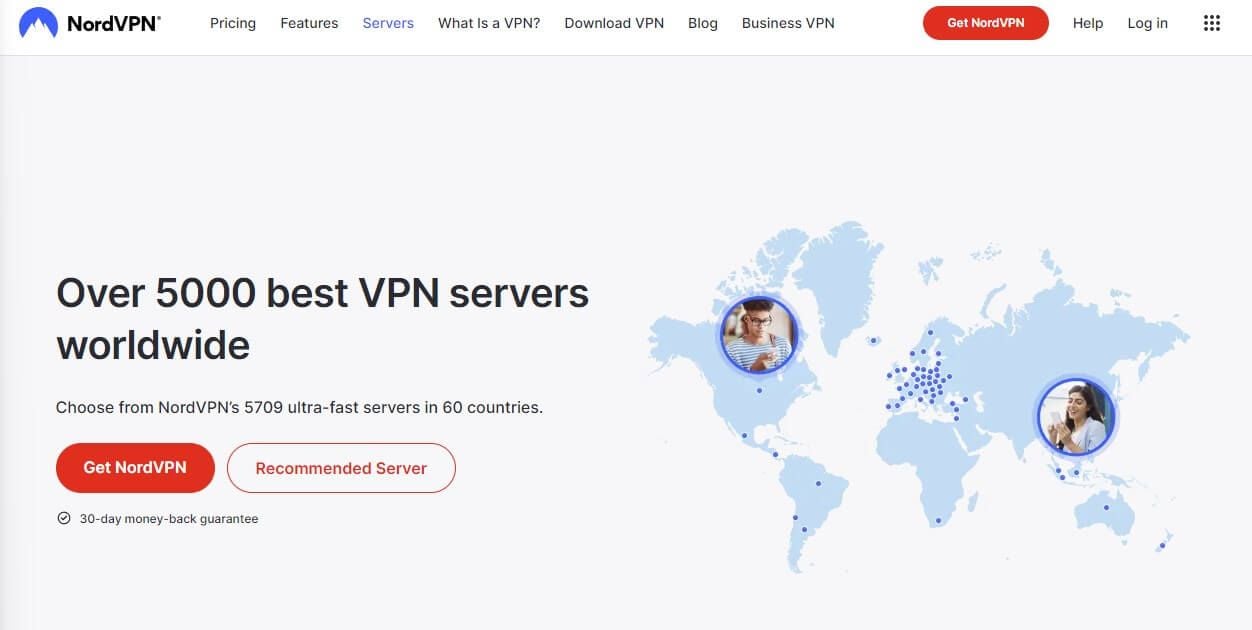
But essentially, you get obfuscated servers, Double VPN, P2P servers, Onion Over VPN, and even dedicated IP servers. The last servers are a premium addition and you’ll most likely not be interested in a dedicated IP if you don’t have special needs.
Other than that, NordVPN is fantastic in terms of server distribution. Unlike Atlas VPN, it has a few African locations, including South Africa but also the UAE, where ExpressVPN has no servers, for example. NordVPN also has nearly 2,000 servers in the USA!
This is very impressive if you’re looking to access US streaming services abroad. Not to mention that all servers are based on RAM and they support more than 10 Gbps speeds. All of this makes the provider truly worth your money, plus it’s very affordable.
Who Wins?
This round was pretty easy and it’s clear that NordVPN WINS. It simply has more servers in more countries, coupled with a better server variety. With just 1,000 servers compared to 5,500 of them, Atlas VPN has no chance of beating its rival.
Customer Support: Atlas VPN or NordVPN?
NordVPN is known for responsive customer support that really feels premium. It offers 24/7 live chat support that responds immediately to your questions. Not only that, but it’s incredibly helpful as well, and you can fix at least 90% of the problems this way.
Not that you’ll have any, but if you do, you have a quick way of fixing them. NordVPN also offers email support, which is also surprisingly fast. Some providers take a whole day or two to respond but NordVPN gets back to you in 10-20 minutes.
On its site, you’ll find plenty of FAQs and an in-depth Help Center if you don’t want to chat. On top of that, the provider has a YouTube channel for getting additional information, so it’s active and alive all the time, which always feels warm and welcome.
Atlas VPN isn’t on this level. Free users and those who haven’t become users yet will have to use email support. Yes, it’s slower and less responsive than NordVPN’s email support. Live chat support is here too but it requires you to sign in to your premium account.
This means that to have 24/7 live chat support, you have to be a PAID user! In this case, the support team will be quick to respond and you’ll have no problems. But hey, you need to pay for this level of support, which is something we honestly despise.
On the brighter side, Atlas VPN’s Help Center is more than decent. You get plenty of information here but also in the Blog section where the provider publishes useful and interesting articles. Is it on the level of NordVPN? Absolutely not, and will probably never be.
Who Wins?
In this Atlas VPN vs NordVPN duel, we can say that NordVPN WINS. It simply has better customer support and allows for 24/7 live chat support all the time. Atlas VPN requires you to be a premium user to enjoy live chat, which is a big disadvantage.
Atlas VPN vs NordVPN Pricing Comparison
Before we declare the winner, there’s one more Atlas VPN vs NordVPN comparison to go through – pricing. We’re talking about two affordable VPNs that won’t cost you a fortune, unlike Astrill VPN. Still, one of them is cheaper and we’re going to see which one. Let’s start with NordVPN.
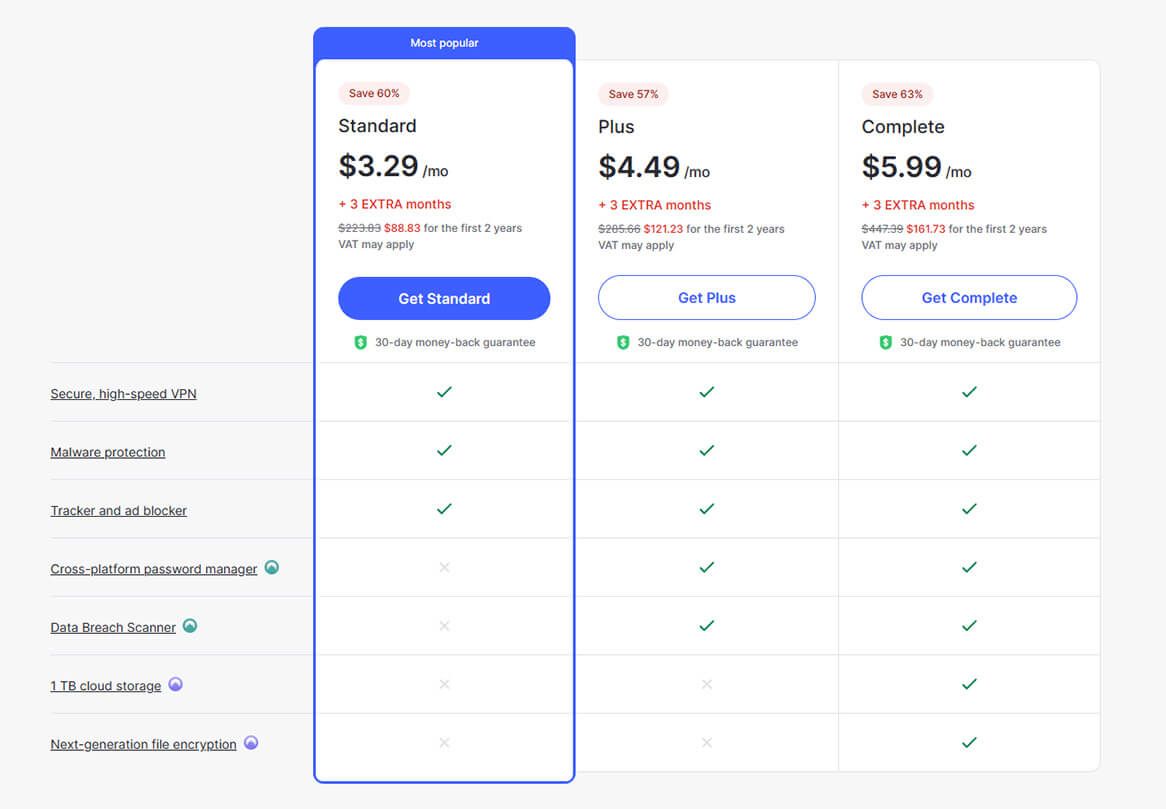
The image above shows NordVPN’s pricing for the 2-year plan. The provider offers the annual and a monthly plan as well but we displayed the 2-year plan because it’s the cheapest. Basically, if you don’t want Plus and Complete plans, the Standard plan is the best option.
Plus and Complete plans include NordPass (and NordLocker in the case of the Complete plan), which you might not need. The Standard plan includes only NordVPN at the price shown above.
In addition, the provider has a 30-day money-back guarantee for ALL plans, so you can use NordVPN’s free trial for 30 days.

If we check Atlas VPN’s pricing, we can see it’s quite different – or cheaper, we should say. At the time of writing, the provider also offers a 2-year plan but it gives you 3 free months at a price that’s half of the price of NordVPN – and more.
Even the annual plan is cheaper than NordVPN’s 2-year plan, making this provider much more affordable. Another thing to mention is a 30-day refund policy that Altas VPN includes in all plans, so you have the same conditions if you don’t like it and you want your money back.
We like that both services offer crypto options for payment for anonymous purchases. However, NordVPN includes value-added taxes in some countries that can even go up to 20%. As a result, NordVN can quickly become much more expensive depending on your location.
Who Wins?
In the final Atlas VPN vs NordVPN comparison for 2025, Atlas VPN WINS by being significantly cheaper and more affordable. If the price of the subscription is your #1 factor, this provider will save you dramatically more money in the long run.
Conclusion: NordVPN Wins!
Whether or not you like math, it’s time to do it. If we take into account all 9 Atlas VPN vs NordVPN tests for 2025, it’s clear that NordVPN is the winner with a score of 8:3. It’s obvious that NordVPN is still a much better choice, which we mentioned at the start.
Atlas VPN isn’t a bad provider and we wouldn’t ever call it that. It’s pretty cheap, which is why it’s plagued by some downsides that its rival doesn’t have. For example, it’s not great for streaming and it has a small server fleet that can’t compete with larger VPNs like its rival.
Another thing to mention is that Atlas VPN isn’t working in China and its 24/7 live chat support is limited to premium users. NordVPN, on the other hand, ticks all the boxes and performs on the top level, without any noticeable downsides, except for value-added taxes in certain countries.
Other than that, it’s extremely powerful and versatile, making it a dream for privacy-aware users who also want to enjoy streaming, blazing-fast speeds, torrenting, browsing the dark web, and everything else. Yes, Atlas VPN beats NordVPN in pricing and it has unlimited simultaneous connections.
But let’s face it. NordVPN’s 6 connections are more than enough for 99% of users if you’re not planning on sharing your subscription. In the end, we recommend getting NordVPN over Atlas VPN if you’re willing to pay more because, as you saw, the difference in price is quite noticeable.
However, if you’re looking for a VPN that won’t cost you much, we wouldn’t blame you for getting Atlas VPN. Although, if we were in your shoes, we’d most likely get CyberGhost in that case because it’s priced similarly, yet, it’s a more complete solution that fixes all the annoying issues in Atlas VPN.